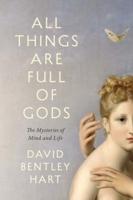Publisher's Synopsis
In this book I show that McTaggart's atemporal vision of reality, which gets little philosophical attention, is a serious attempt to describe a coherent world without time. I suggest that the answer to the puzzling nature of time is not to be found in its components but in the atemporal C-world that McTaggart describes. Like McTaggart, I hold an idealist view. In the Introduction I outline and justify the intention of the book and provide an analysis of the contents. In Chapter 1 I provide a guide to McTaggart's important works, an explanation of some of his terms and a description of important features of his fuller philosophy. In Chapter 2 I explain McTaggart's argument against the reality of time and some of its outcomes. I argue that atemporality is a reasonable view to hold. Though it is difficult to accept the strongly idealist view that it is events that change and not things, the much attacked vicious regress of the A series, which McTaggart proposes, is defendable. In Chapter 3 I find none of our commonly held views on time fully coherent. A closer look at the components of the A series only increases the confusion. In Chapter 4 I look at some philosophical positions that we can adopt on time. I find that McTaggart's position appeals to common sense and is surprisingly close to modern scientific views. In Chapter 5 I describe how the atemporal world is coherent with McTaggart's description of reality and holds fundamental relations with the temporal world of our experience. In my Conclusion I explain that we can accept the atemporal features of McTaggart argument without having to accept his system in total. The central elements of the atemporal world have psychological appeal and this idealist view is not out of place in modern times. I argue that McTaggart's atemporal world is a strong foundation for a new atemporal thinking. The book is extensively referenced and includes a full bibliography.








